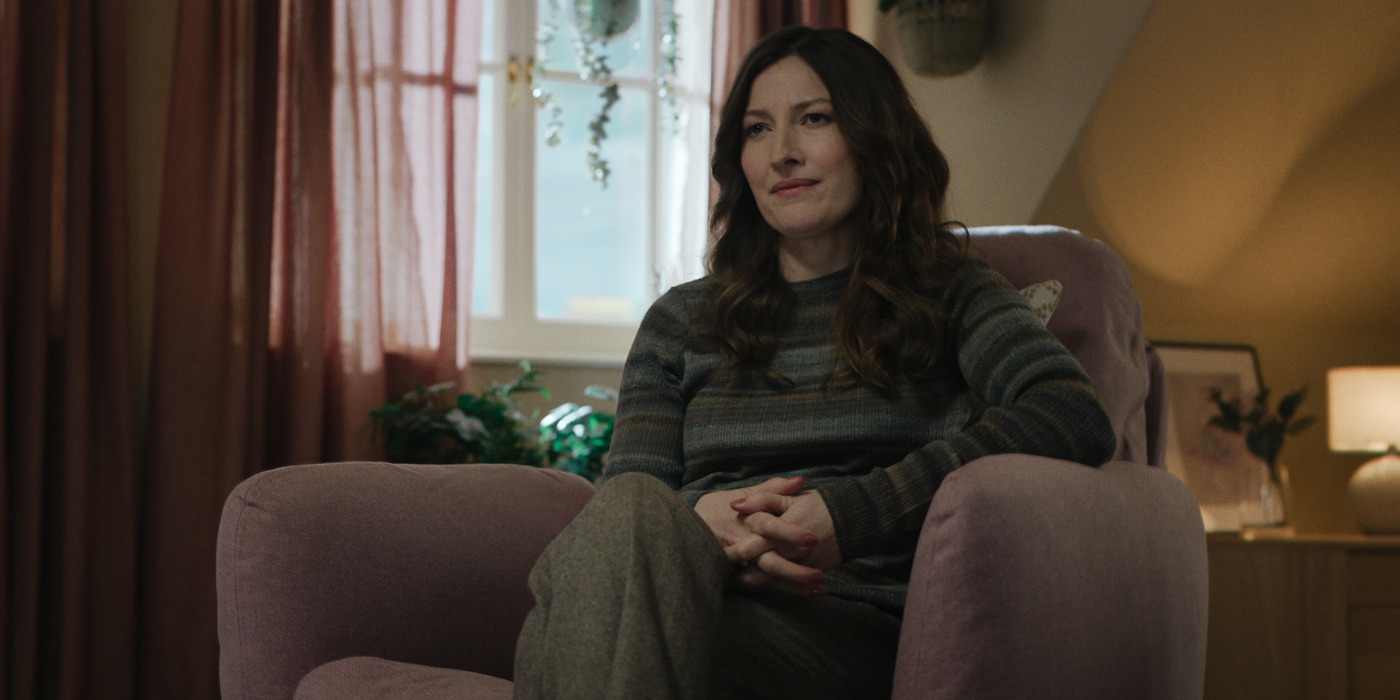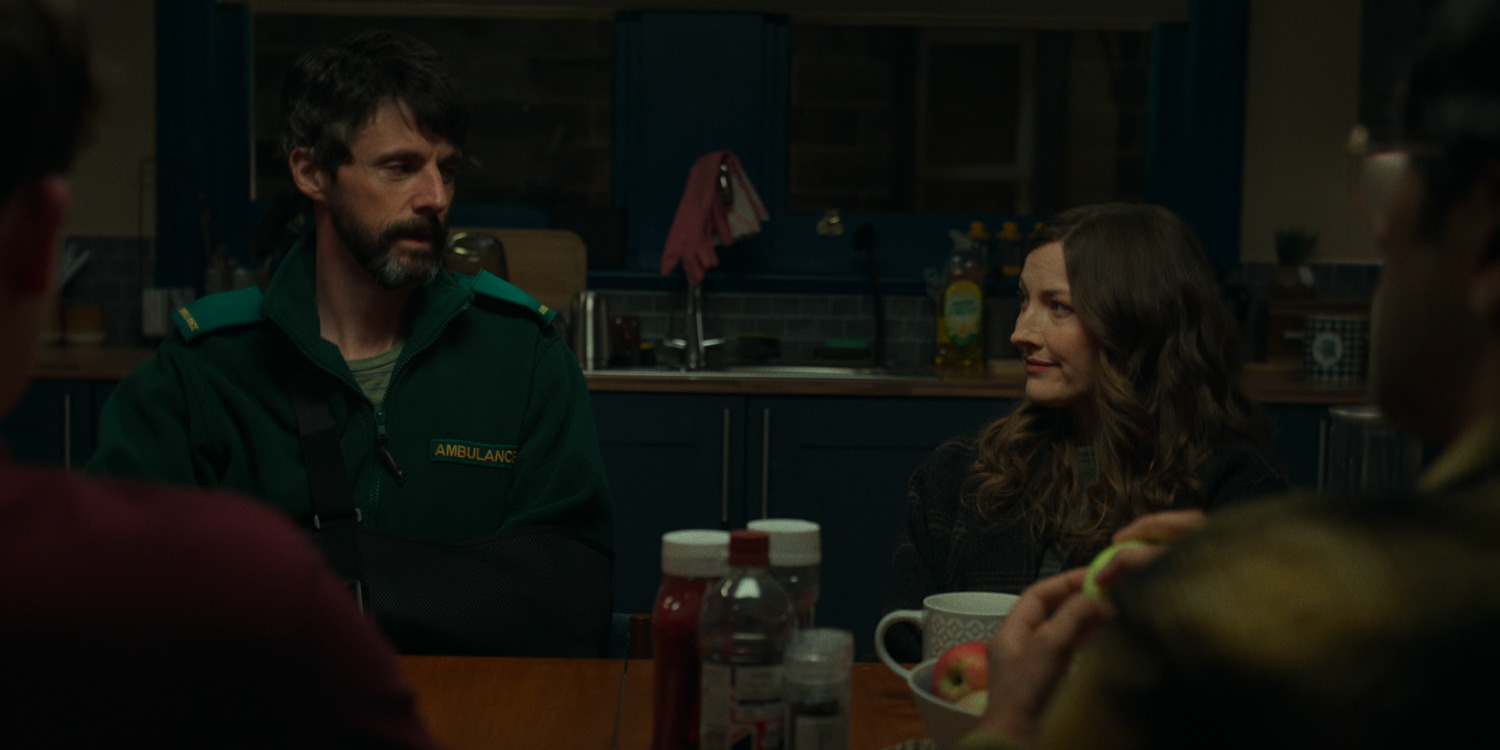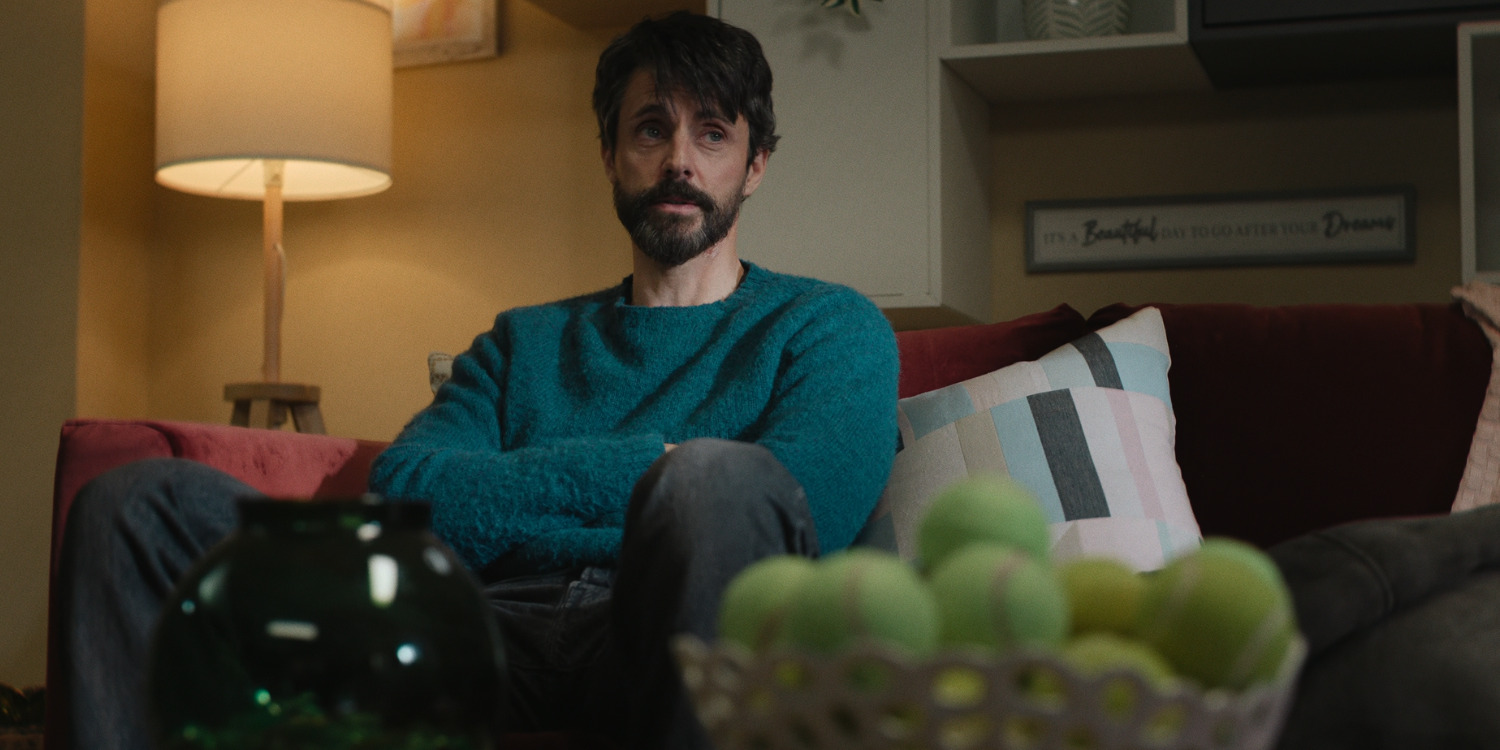Netflix’s police procedural show ‘Dept. Q‘ centers around DCI Carl Morck and his cold case investigation unit as they take up a four-year-old missing person case. Consequently, the story oscillates between the investigative efforts of the misfits at Department Q and the brutal horror of prosecutor Merritt Lingard’s years-long abduction at the hands of a pair of psychopaths. In the midst of it all, the narrative takes pockets of time to delve into Carl’s personal life, which remains a cesspool of complications. The same, paired with the detective’s recent encounter with a traumatic shooting, inevitably lands him in department-mandated therapy sessions. Even though he stubbornly refuses any actual help from these sessions, he surprisingly strikes up a dynamic with his therapist, Dr. Rachel Irving. Naturally, between their inclination toward bickering and his flirty remarks, one can’t help but grow curious about where exactly this relationship takes the odd duo. SPOILERS AHEAD!
Carl and Rachel Move Past the Point of Professionalism
Carl and Rachel first cross paths at the latter’s office, where the detective is mandated to attend therapy hours. Recently, he had undergone a severely traumatic experience on the job after he had taken a bullet to the neck during an attack at a crime scene. In the same incident, a young cop, Anderson, lost his life, while Carl’s partner, DCI Hardy, sustained an injury to his spine that left him largely paralyzed. Consequently, as the only person to walk away from the incident without any prominent physical damage, the detective sustains a massive case of survivor’s guilt. Nonetheless, his pre-existing conditions, which include a sizable superiority complex, make it impossible for him to engage in obligatory therapy.

On her part, Rachel figures all of this out about Carl early into their session, likely due to a prior experience in working with law enforcement individuals. For the same reason, she remains uniquely unwilling to entertain any of his antics, happy to stay blunt, aggressive, and uncouth from the beginning. When Carl attempts to discredit the significance of their sessions, she simply pulls out her lunch rather than give any weight to his temper tantrum. As it turns out, this is the exact approach that seems to work with the aloof, closed-off detective. Thus, he gets attached to Rachel and her distinct brand of wake-up calls before he knows it. Still, he refuses to let go of his uncooperative nature, barely ever attending sessions, especially after he makes things awkward with a flirty faux-pas.
For the same reason, Carl’s boss, Moira, ends up swapping out Rachel as his therapist. Nevertheless, the detective doesn’t let that stop him and ends up using less than conventional means to reach out to the mental health professional outside of office hours. Between showing up at her house and crashing her date for advice on his psyche, he toes the line into stalking. However, as troubled as Rachel is by these actions, he ends up reciprocating them by showing up to his own house with a tongue-in-cheek gift by the end of season 1. Ultimately, their relationship certainly leaves the confines of the therapist’s office, even if it’s in a way that is wildly unconventional, yet uniquely them.
Carl and Rachel’s Relationship Has Potential to Turn Into Something More
From the get-go, Carl and Rachel’s dynamic retains the potential for romance. Both individuals recognize it too, which is why the latter begins wearing a wedding ring from their second session, which doesn’t go unnoticed by the detective. Their professional relationship as a therapist and her client certainly sets down certain parameters that would be ill-advised to cross. In fact, Rachel asserts the same when Carl’s earliest flirtatious attempt. However, the possibility for it remains wide open. On multiple occasions, the pair matches each other’s snappish and snipey personalities.

Likewise, Rachel ends up reciprocating Carl’s various invasions of privacy, including excavating her residential address through dubious means. Therefore, it seems evident that the duo are on a similar wavelength to each other. Furthermore, now that Rachel has been effectively fired as his therapist, a title she wore with debatable responsibility, professionalism doesn’t necessarily have to be a concern between them. As it stands, the duo ends their stories on an amicable, friendly note for now, with Rachel attending a rare instance of a family dinner at the Morck residence. Thus, even though there’s plenty of potential for her and Carl to strike up a romance, any such development would only be possible in a future season.
Read More: Dept Q Ending Explained: Who Kidnapped Merritt? Why?


